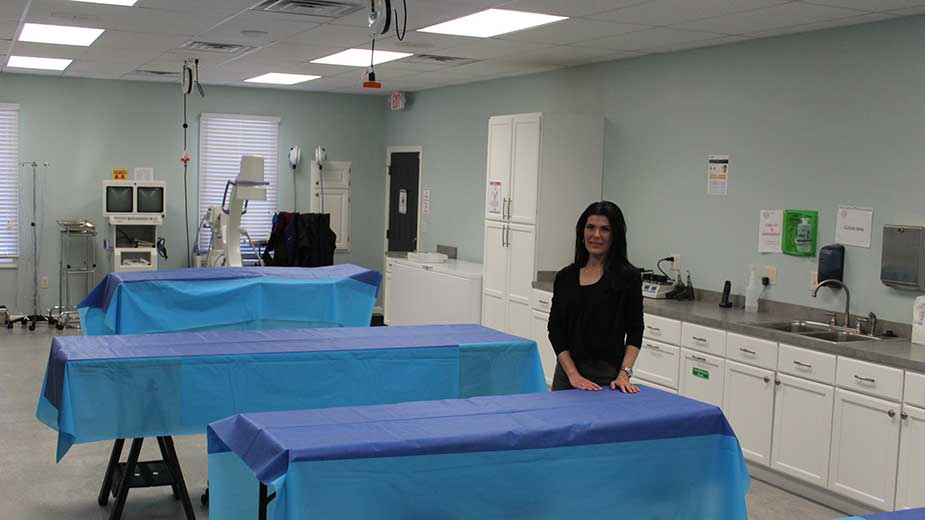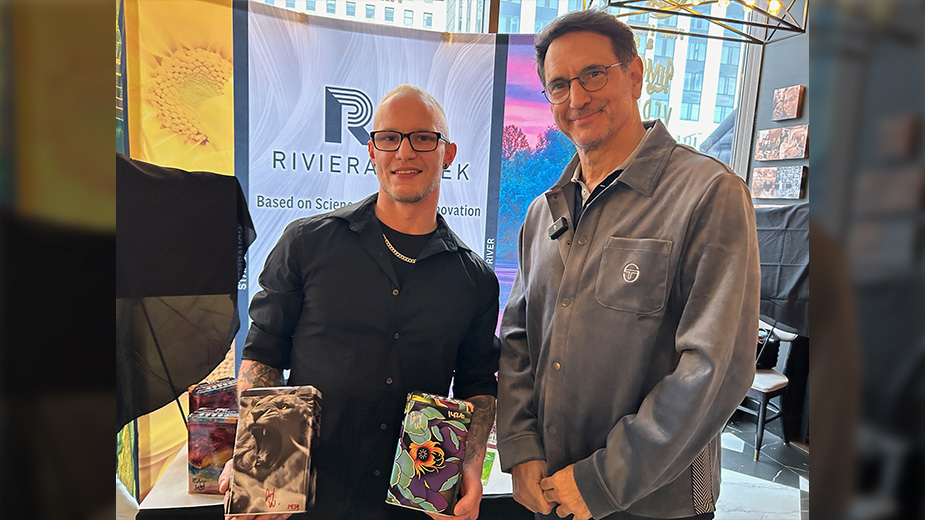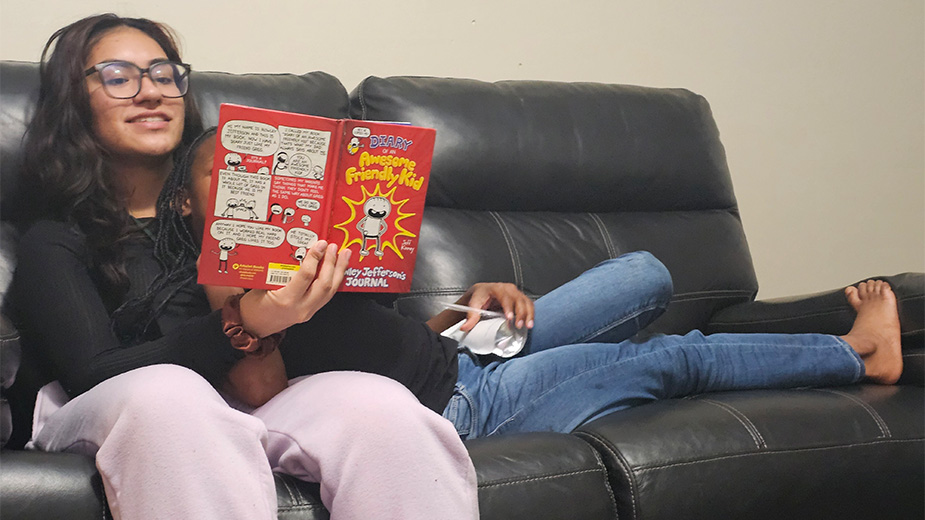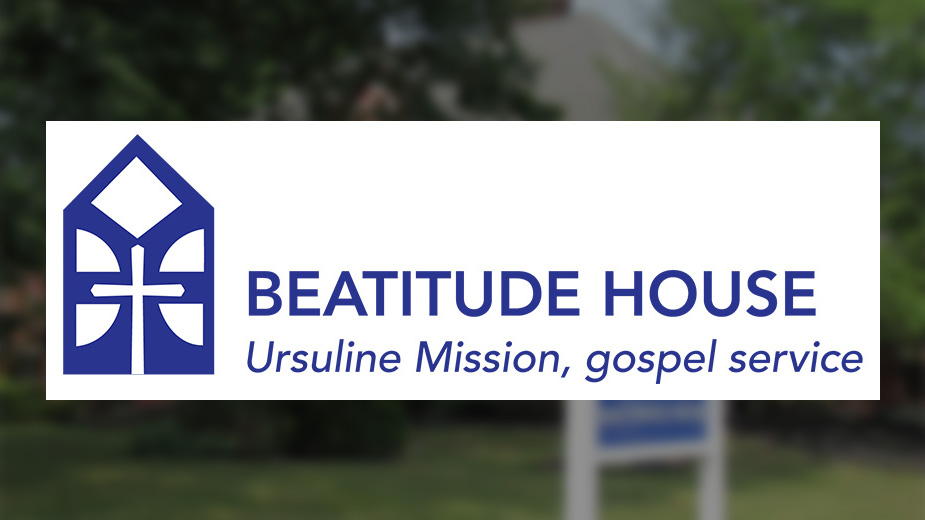YoLab Aims to Fill Valley’s Medical Training Gap
POLAND, Ohio – Inside a nondescript office building on the eastern side of Poland, Youngstown Medical Training and Education Lab provides the Mahoning Valley’s doctors – whether they’re fresh out of medical school or well-established in their careers – with the training they need to stay at the peak of their profession.
“We provide support for what our doctors and surgeons and medical reps are trying to accomplish,” says Maura DiDomenico, managing director of the lab.
The idea for Youngstown Medical Training and Education Lab stemmed from the work DiDomenico’s husband does as a podiatrist. Whenever he needed training on new procedures or equipment, it was almost always after a full day of work. The closest lab sites were in Akron or Cleveland and with the labs themselves lasting upward of four hours, getting the extra training was an arduous task.
“He always felt that there’s enough of a medical field in this area that we could fill the gap,” DiDomenico says. “Youngstown is overlooked for a lot of things, but we’ve got a lot of talent here and quite a few residency programs. They need the support to thrive and keep us on the map.”
So, 3½ years ago, the couple opened Youngstown Medical Education and Training Lab – or YoLab, as it’s been branded. Beyond the 1,000-square-foot lab space where doctors and residents can practice techniques and learn how to use new equipment, the site also offers a lecture room, exam rooms, telecasting equipment, a kitchen and locker rooms with private showers. It hosts about four training sessions every month, says DiDomenico, the company’s managing director, and accommodates a wide range of medical fields. Education on dentistry, gynecological care, spinal treatments, surgery and more has all been done in the lab, inside Suite B at 3262 Center Road in Poland Township.
“There’s no limitations. This is the empty shell and I can help facilitate the labs. … We handle the shipping and delivery of equipment,” she says. “In a recent spine lab we hosted, there was a FedEx truck absolutely full of boxes of equipment for just that one lab. We set it up and clear it all out before the next group.”
Between handling deliveries, setting up the lab, hosting the session and taking it all down afterward, it takes about four days per lab, DiDomenico says. But the planning process starts weeks in advance. For returning clients, it’s usually four to six weeks, but for those who’ve never used Youngstown Medical Training and Education Lab before, an eight-week time frame is “really helpful” and allows DiDomenico to ensure all the necessary equipment is available.
Since opening, YoLab has amassed its own collection of basic equipment used throughout the medical field, including a C-arm X-ray machine, arthroscopy towers and materials like sutures and protective equipment. If a client needs something that’s not in the lab’s inventory, DiDomenico will order it and keep it on-site afterward. The specialty equipment – what’s brought in by representatives from medical equipment companies or medical centers – is almost always provided by the organization renting the lab.
“We don’t charge for those tools because they stay in our inventory. That person will come back or we’ll do another similar lab so things get used again,” DiDomenico says.
Then, there are the bodies.
Among the services offered by Youngstown Medical Training and Education Lab is the use of cadavers for practicing medical techniques. Through Anatomy Gifts Registry, based in Baltimore, DiDomenico provides bodies to clients.
“I work with medical education teams to find out what their requirements are for cadavers. Before this, I never would have guessed there were so many options when ordering a cadaver,” she says with a laugh. “A lot of it has to do with the specifics of the body, like the length of someone’s leg. Last week, I ordered one that, for a lower extremity lab, has latex injected below the knee. It was a specific podiatry technique and they needed the veins cleared out and filled with latex.”
The frozen bodies are flown in ahead of a lab and stored on-site. If a client plans on using a cadaver more than once – say, one lab on a podiatry technique then another focusing on thoracic surgery – YoLab will store them for up to 90 days. Once the labs are done, the cadavers are sent back to Anatomy Gifts Registry to be cremated.
Cadavers, says Mercy Health-Youngstown’s Amanda Lencyk, give doctors and residents a more realistic experience, making the training more effective. While St. Elizabeth Youngstown Hospital has its own cadaver lab, the facility only uses embalmed cadavers. Such bodies are more rigid and, while suitable for some training sessions, aren’t as lifelike as frozen cadavers.
“Being able to provide training for medical skills on a frozen cadaver gives residents the most realistic training experience. They can be a calm learning environment to practice these procedures rather than being thrown into the heat of the moment,” says Lencyk, trauma injury prevention and outreach coordinator. “We can take them out of the hospital and put them in this state-of-the-art facility where they have time to really process what they’re doing. Rather than working in a traditional operating room, it’s a different environment that’s been phenomenal for our residents.”
St. Elizabeth’s has used YoLab since 2018, when a surgeon was looking to host a continuing education course that required fresh cadavers. In the years since, Youngstown Medical Training & Education has hosted everything from suture training for residents to equipment training by companies for Mercy. It’s availability, Lencyk says, has been “phenomenal” for both residents and doctors.
“It’s the only lab in our area that’s able to provide these services. If we wanted to send them to another lab, it’d be in Cleveland or Pittsburgh. We’re really fortunate that it’s so close,” she says. “It’s easily accessible, which allows us to fly in national faculty for courses. That’s opened it up to let people fly in to Cleveland or Pittsburgh then drive to attend our labs.”
That kind of access, DiDomenico says, is a benefit for the local medical community. She’s heard from residents in labs that at some sites, they’re only able to practice on cadavers once or twice a year. Beyond that, their learning happens with live patients. Residents are still trained doctors who’ve graduated medical school, but they’re early in their careers. Any extra leg up they can get in training is crucial.
“To have access to cadavers monthly, they said, is a game-changer,” DiDomenico recalls about one group. “It’s beneficial to this community that we can have these labs, accreditation courses and continuing education without making people travel so far. It’s a major convenience factor.”
Pictured: Youngstown Medical Training and Education Lab managing director Maura DiDomenico inside the lab, which can be reconfigured as clients need. The lab has hosted everything from dentistry and OB/GYN labs to suture training.
Copyright 2024 The Business Journal, Youngstown, Ohio.



